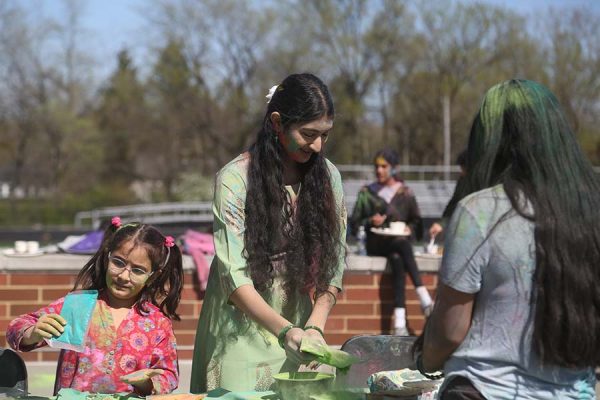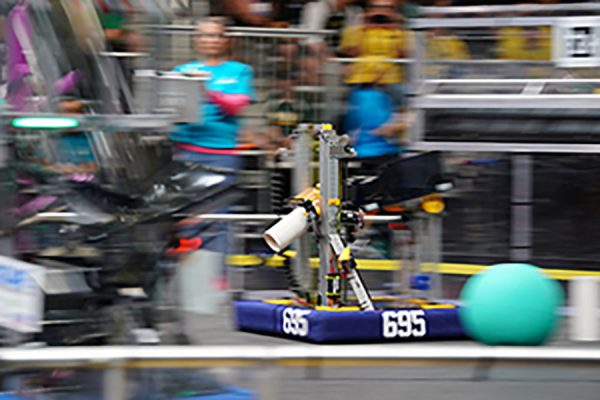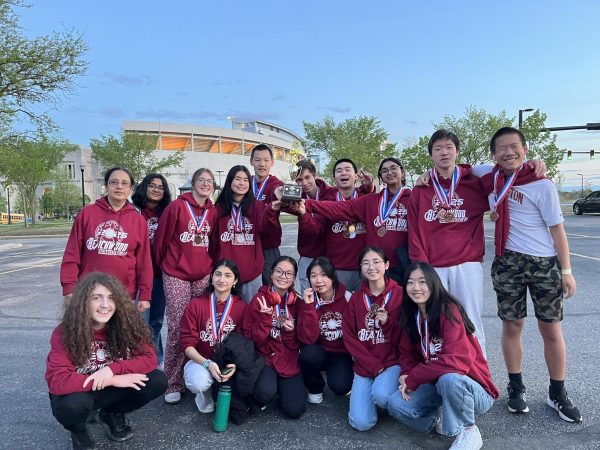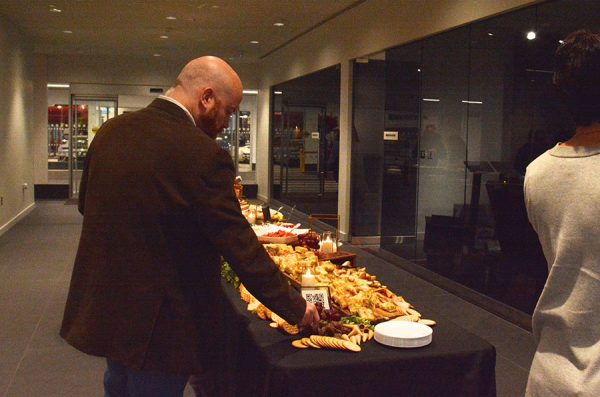Tensions Increase Locally After Violence in Middle East
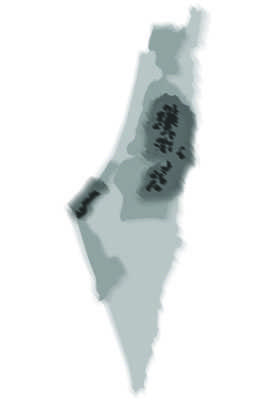
The crisis in Israel and the Gaza Strip this summer, Operation Protective Edge, has caused an increase in anti-Israeli sentiment, and has led many to question whether criticism of Israeli policy is making anti-Semitism more accepted, especially on college campuses.
Three Clevelanders at Ohio University, including Beachwood alumnus Jonah Yulish, were arrested Sept. 10 while speaking beyond their allotted time at a student government meeting. The students objected to a provocative anti-Israel video posted by Student Government President Megan Marzec.The video, a twist on the popular ALS ice-bucket challenge, depicted Marzec wearing a shirt reading “Ohio U Divest from Israel,” and dumping a fake bucket of blood over her head, intended to represent the blood of Palestinians in Gaza.
“It’s…made us realize that we need to continue to educate our young people on how to handle situations like that. Those kids were very courageous and did a wonderful job of standing up for Israel,” said Rabbi Rosette Haim of Temple Tifereth Israel.
Many Jewish Clevelanders are enraged.
“I’ve talked to a lot of the people at the synagogue who say, ‘Oh, I’m [an Ohio University alum],” said Rabbi Sharon Marcus of Park Synagogue. “They called for money, and I told them I’m not giving any money. I’m giving money to the Hillel. I’m not giving money until the president makes a statement or drops the charges [on the students].’”
The conflict in the Middle East has also sparked the passions of pro-Palestinian groups such as Al-Awda, which protested at the recent basketball game between Maccabi Tel Aviv and the Cleveland Cavaliers.
“We’re a non-religious group, non-sectarian, non-denominational. We do have supporters from all faiths. We have Jewish support, we have Christian support, we have Muslim support, Buddhist, Baha’i, you name it,” local rally organizer Abbas Hamideh said.
While protests are common, Marcus believes that anti-Israel propaganda is the worst in the US on college campuses, and that many liberal college students don’t take the time to learn all of the facts about Israel before they jump to conclusions.
“They think they’re against the fighting in Gaza, but they don’t realize they’re being led to anti-Semitism because there’s just not enough education about the subject,” Marcus said.
Senior David Kaye sees a fine line between anti-Semitism and anti-Israel sentiments as well, especially when the opposition refers to the other side as “Jews” rather than “Pro-Israel.”
“You can fully criticize Israeli policy without being anti-Semitic. The second you turn it into a religious thing is when it becomes anti-Semitic. I personally criticize how Netanyahu has handled this situation with Gaza,” he said. “However, I’m not anti-Semitic when I criticize Israel. The difference between me and the people who actually use anti-Semitic slurs is the fact they use slurs.”
However, fewer and fewer people have been making the distinction lately between criticizing Israel and criticizing Jews.
“You could have a very civil conversation about Israeli politics and people could be against Israel,” Marcus said. “[For instance] something the government has done and [they could] not take it out on Jews worldwide, which is where it crosses the line on being anti-Semitic. The truth is, we’re seeing very little of that.” She mentioned violence against Jews in London and Paris as examples where criticism of Israeli policy has crossed the line into anti-Semitism.
Others have also seen international manifestations of anti-Semitism. “At my camp, one of my friends is from Kuwait and he was constantly exposing me to these anti-Semitic Twitter and Vines that [were] showing Palestinians getting killed by Israelis, talking about how terrible Israelis are, and how terrible Jews are,” Kaye said. However, he has not experienced any acts of anti-Semitism in Cleveland.
But it hasn’t always been like that. According to Haim, there used to be areas in Cleveland, as recently as the 1960s and 1970s, in which Jews were not allowed to live.
“I know in our neighborhood, which is in Beachwood, there’s a house that had a deed stipulating that it could never be sold to a Jew. Of course, Jewish people live in that house now,” she said.
That’s a testament to how much Cleveland has changed in recent decades. Haim believes that it is now a very welcoming community with strong bonds between Jews and gentiles.
“[T]hat has really helped to make our entire Cleveland area stronger. We work together, we’ve partnered together on a lot of different projects,” Haim said.
At the Oct. 5 Cleveland Cavaliers game against Maccabi Tel Aviv, Al-Awda organized a protest of almost fifty people, according to the Plain Dealer.
“We were protesting in particular Coach Blatt who was the coach of the Israeli team before he was for the Cavs,” said Hamideh. “He made comments that he supported the Israeli bombardment of the Gaza Strip. He said that it was the most justified war in his opinion.”
Hamideh also was opposed to the fact that basketball was “politicized.” He considers the fact that of the four international teams invited to play in the states, two of them were from Israel–Maccabi Tel Aviv and Maccabi Haifa–to be “showing allegiance.”
However, his organization is not anti-Semitic, and nor does Hamideh personally have anything against Jews in general, or Semitic Jews living in Israel.
“The Jews as a religion have a right to exist just like anybody else… If you’re a Jew who was born in Palestine, you have a right to live there.”
However, he went on to explain his view that Jews from New York, for example, who are not Semitic, do not have a right to move to Israel simply because of their religion.
“Israel doesn’t have the right to exist on top of another nation. It simply does not,” he said.
Others point out that there have been acts of violence perpetrated all over the Middle East.
“[The people speaking out against Israel] weren’t speaking out that hundreds of Christians were killed in a day in Syria, or Muslims were killing Muslims in Syria,” Marcus said. “The number of fatalities in Syria in the last year was so much higher than [in] Gaza but no one was speaking out about that. And…about ISIS destroying the Christian community of Mosul.”
“Hamas was throwing the rockets, was the aggressor [in Operation Protective Edge]. Israel was defending itself. The same people who were complaining about human rights in Gaza were not talking about human rights in countries where it was very, very blatantly…much worse,” Marcus said.
Hamideh is critical of the governments on both sides of the conflict.
“Palestinians have issues with Hamas as well. They have issues with the Palestinian Authority which happens to be [governed by] Fatah,” Hamideh said. “Some of us may disagree with them tactically…but everyone has a different way of governing.”
No matter which side people sympathize with, Haim stresses the importance of paying close enough attention to be able to find the facts in the news, something she says is all too uncommon.
“I hope people continue to take the time to travel to Israel and recognize that it’s a wonderful country. It’s contributed tremendous innovations to the world and all you have to do is pick up your cell phone to know that Israel is inventive and it’s a viable country that we hope will continue to exist,” Haim said.




